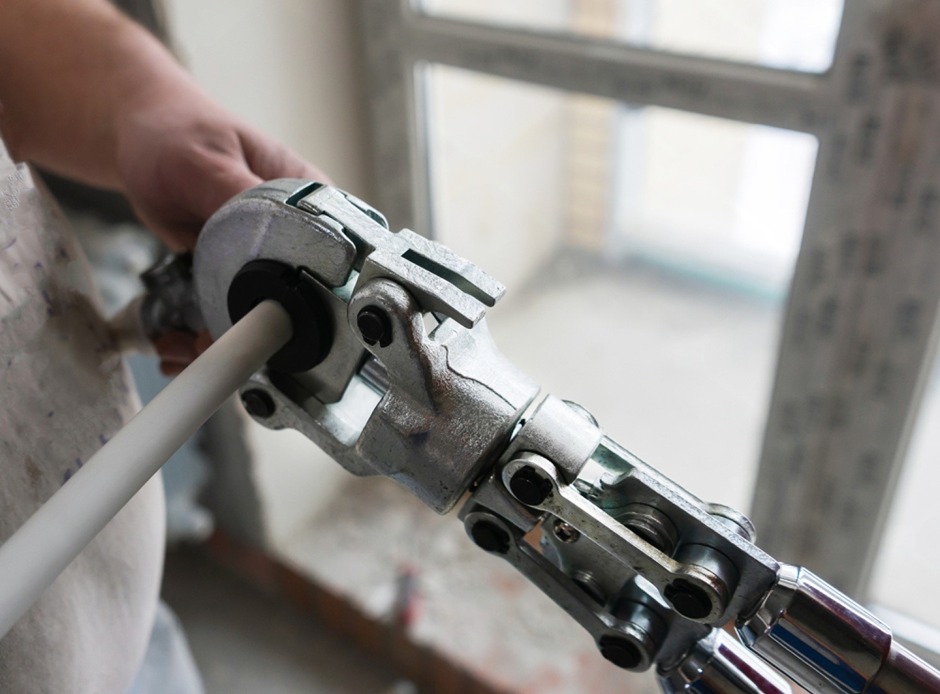There is no scope for negotiation when it comes to pipe connections in plumbing work. Pressing and soldering are the two popular methods that are used by plumbers. But making the right choice comes with a few considerations.
Plumbers either rely on a copper pipe pressing tool or traditional soldering when joining pipes. Since copper is strong and durable, the material can withstand high temperatures and pressure. This makes the metal useful in joining pipes in plumbing activities and has become a common consideration in water supply, gas lines, etc. On the other hand, some plumbers still resort to traditional soldering for pipe pressing.
But which one to choose? Which one is going to be more beneficial? This article examines which is better in terms of time, effort, and cost.
What is Copper Pipe Pressing?
Copper pipe pressing refers to a plumbing technique where copper pipes and fittings are joined via a powered tool. This ensures the creation of a mechanically sealed connection where the fitting is compressed into the pipe.
A hydraulic press tool is a common plumber’s tool kit and is used for joining pipes. This process does not create any flames, which makes it a widely accepted method in modern plumbing. The installation process is also quick.
What is Traditional Soldering?
Traditional soldering is a procedure where a filler metal alloy called solder is used to join two metal parts. A soldering iron is used to melt the solder, which ensures a durable and reliable connection.
Soldering has been largely used over the years by plumbers. The method, versatile and reliable, is preferred by plumbers because it ensures stronger pipe connections.
Comparing Factors for Pressing and Soldering
Both copper pipe pressing and soldering are widely used by plumbers. However, both these methods have specific advantages and disadvantages. They differ in certain aspects, which is why plumbers need to consider the factors before choosing one.
Installation Speed and Efficiency
If a plumber relies on a copper pipe pressing tool for joining pipes, the installation process can be done within a short span. This accounts for saving labor costs, which makes it applicable for large projects. Because of quicker installation, plumbers can complete a project within the pre-set deadline.
Unlike pipe pressing, soldering is a slow process. Despite this, the method has been used in plumbing works for decades. Soldered joints are strong and can last longer, even though they are more time-consuming.
Safety Consideration
Choosing the right plumber’s tool kit is important during pressing situations so that the professional does not get injured. Copper pipe pressing is a safe process because there are no open flames. Therefore, this process is used by a plumber while working in a confined space.
Compared to pressing, soldering is less safe. This is mainly due to the fire risk. Additionally, you may experience severe burns from the molten solder. This makes the process not suitable for wooden buildings. The presence of lead in some solders also accounts for chemical hazards.
Needed Skills
The fundamental reason behind the wide acceptance of copper pipe pressing in plumbing jobs is that the technique is easy. Even a novice plumber can learn within a short span. This has a lower error chance, which makes it a better consideration for plumbers than soldering.
On the other hand, only a professional plumber can join pipes via soldering. This is not within the potential of a layman to control the flame during soldering.
Durability
Copper pipe pressing is a less durable method than soldering. This is because the method prefers mechanical deformation to create a connection, which can exert stress on the components. Well, choosing the right plumber’s tool kit can result in achieving better results.
Soldering offers a high level of durability because of stronger joints. The considered materials can deal with temperature and pressure variations. This makes the method suitable for different plumbing applications.
Here are some more differences between these two pipe joining methods.
| Aspects | Pressing | Soldering |
| Cost | High upfront tool cost but low labor cost | Low material cost but high labor time |
| Convenience | More convenient | Less convenient |
| Rectification | No redo once the metals are joined | Mistakes can be fixed repeatedly |
Table: Pipe Pressing vs Soldering
When to Prefer Copper Pipe Pressing?
Plumbers need to prioritize the copper pipe pressing tool in the following cases.
- Strict deadlines
- High-volume jobs
- Retrofit projects
- Working in occupied spaces
When to Prefer Traditional Soldering?
The best use cases for soldering are:
- Joining dissimilar metals
- Working on high-pressure applications
- Joining delicate components
Making the Correct Choice
The right choice depends on a particular situation. Let’s check out.
- Project Size: If you are engaged in a large-scale project, copper pipe pressing is a better option. This is time-saving with less complexity.
- Expertise: Is the plumbing team trained? Then go for soldering. If not, it is better to go for pressing.
- Budget: If you are unable to make a high initial investment, soldering is a better option for you.
Final Thoughts
Copper pipe pressing has a slight edge over traditional soldering because of the lack of flames, and the installation procedure is done quickly. Conversely, soldering is better than pressing in terms of joining dissimilar materials and combating high pressure. The better one depends on the project scope, expertise, and budget.
Getting Plumbing Works Done
There is no specific answer as to which is better between pressing and soldering. Plumbers must be capable of performing both so that the more suitable one can be chosen in a specific situation. Just get the tools from a reliable supplier, and you are good to go!
